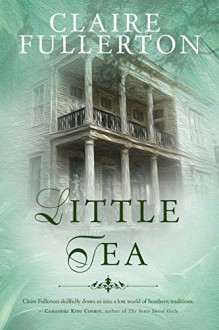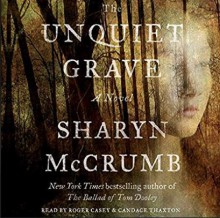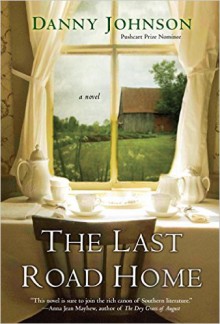
I received an ARC copy of this novel, pre-release, from the author, which I freely chose to review. This has in no way affected my opinion.
I have never read any of the author’s previous books, but I’ve read many positive reviews, and I couldn’t let the opportunity of reading this novel pass me by, especially because of the setting of the story in the American South, as I’m a fan of Southern literature.
The story centres on Celia Wakefield from old Southern Mississippi stock whose family has a cotton farm (no longer called cotton plantations) although now they spend most of their time in the city, Memphis. She is the narrator of the story (in the first person), and a phone call from one of her best friends (Renny, Ava and her became friends in college and have remained in touch through the years, even though now they all live far away and don’t see each other as much as they’d like) sets the action in motion. The three friends reunite to help Ava, who is facing a family crisis. At Renny’s lake house, in Arkansas, they renew their friendship, talk about life, and can’t help but remember the past. As a consequence, the chapters alternate, some set in the present and others in the 1980s when Celia was a young girl. We learn about Little Tea, Celia’s friend, the daughter of an African-American family who’d always lived in the Wakefield’s farm and worked there. She is determined, a great runner, and one of Celia’s brothers becomes her trainer and encourages her to explore her opportunities. But this is the Deep South, and old social rules and mores still apply, especially when it comes to race. The story builds up slowly, and the present struggles Ava is going through in her relationship highlight not only the different approaches and personalities of the three women, but also how the past influences our decisions and our take on life.
The novel deals with many themes: friendship (and the relationship between the three women feels genuine. There are the shared jokes, the strong bonds, the understanding without saying a word, and also the willingness to leave everything and do an intervention to help a friend in need, even if the other women might not agree with her behaviour), first love, family relationships, memory and the past (can we truly run away from it?), identity and family tradition (how much should we sacrifice to keep the family’s reputation intact? Can we choose who we are and break complete free from our family roots?), race relations, tragedy and mourning among others. Although we see all of this through Celia’s eyes and reflections, the separate timelines and her own hindsight allows us to read between the lines and to perceive things than young Celia wasn’t aware of (or tried not to see). This is achieved in very subtle ways, and although the sphere of the story feels quite intimate and domestic, some the themes it discusses are neither lightweight not easy.
Fullerton creates a varied palette of characters, and I think most readers are likely to identify with one of the three friends (personally, I think I’d get on with Renny best of all, the determined and practical one), who fit in well together because they are quite different but compatible. Little Tea and her family (to a lesser extent) are wonderful characters, and Celia’s family is made up of a variety of personalities and individuals, some likeable and some not, some larger than life, and others quite nasty, but they all are fully achieved and, like them or not, come to life in the story. There are others (Tate, Mark, and some of the other young men in the story, relatives…), and although we learn less about them, we still get to see them from Celia’s perspective, and they play their part, both in the past and in the present. I kept thinking about Tennessee Williams and some of his more memorable characters as I read this novel. His mastery at depicting Southern family life and stripping it back to the bone in his plays is something Fullerton also excels at, although her approach is a more understated.
I know some readers don’t appreciate stories written in the first-person, and I seem to be reading plenty of these at the moment, but the writing is beautiful, lyrical, and it makes readers experience everything, from the heat to the excitement of the first love, and from the smell of the food to the disappointment and pain when life takes an unexpected and cruel turn. The story is preciously observed and told, and it will not suit impatient readers who prefer matter-of-fact writing, with only the most basic descriptions strictly necessary to help move the story forward and short sentences that rarely meander along. There are also plenty of airy and fun moments, especially when the friends are joking and having fun, and those allow readers to have a bit of a break from the most intense and soul-searching parts of the story. The author also uses Southern expressions and vernacular to good effect and this adds to the atmosphere of the novel. I have highlighted plenty of the text, and it’s difficult to choose a sample, but I’ll try (remember that I had access to an ARC copy and the final text might have undergone some minor changes):
Nostalgia has selective memory; it softens the heart and strips the details to leave you with what should have been instead of what was.
Combined, we were a girl complete. Separately, we were inchoate and in need of each other, like solitary pieces of a clock that were useless until assembled, but once assembled, kept perfect time.
Happiness seemed to me to be little more than intermittent highlights that faded to memory like the light of a burned-out star. And what’s more, in the times I thought I had happiness by the handle, I discovered that, all along, there were subterranean forces plotting to tell the rest of the story.
I don’t want to discuss the ending in detail, because I want to avoid spoilers, although there is a big twist at the end. I saw it coming, and I wasn’t particularly convinced by it (in my opinion it would have worked fine for a short story but not so much here), but many readers have liked it and it does not detract from the rest of the novel.
In summary, this is a novel beautifully written and observed, and I’d recommend it to readers who are looking for stories with complex female characters, especially those who love stories set in the South, and to fans of Southern writers such as William Faulkner and Tennessee Williams, although Fullerton has a lightness of touch that is all her own. A great author to follow, and one I hope to read again in the future.

 Log in with Facebook
Log in with Facebook 












